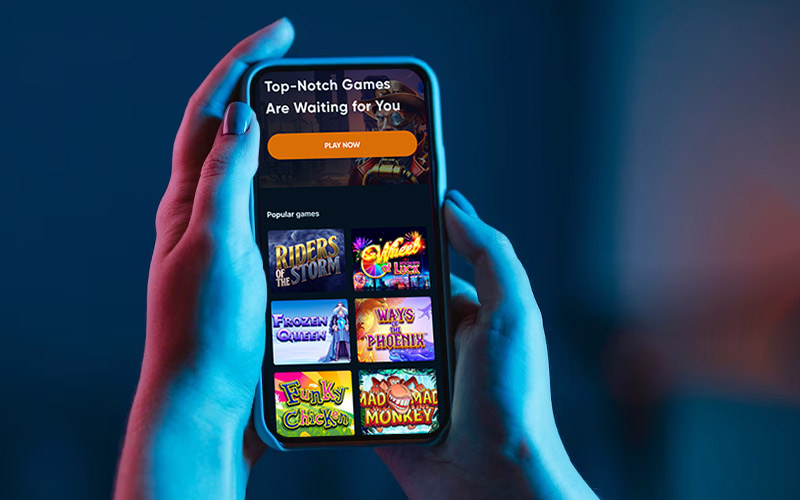
The popularity of internal eco-spaces is growing rapidly. They bring maximum benefit to operators, reducing their legal and financial risks.
Experts from the Casino Market company talk about the features and advantages of these solutions, monetisation options, and key trends in the entertainment niche.
What is a Closed Economy in Gambling Projects

This is a system in which players use internal currency (tokens, credits, or points) instead of real money. Such a model allows entrepreneurs to control the flow of funds, reduce the risks of capital withdrawal, and increase user engagement.
History of Service Development
Closed economies in the online casino sector have evolved from simple chips to complex digital spaces with tokens and NFTs:
- 2000s — the emergence of the vertical and the first iGaming systems. For the convenience of customers, balances were introduced. Clients could deposit money there and use it only within the portal. Bonus credits and free spins appeared as well. They could not be withdrawn immediately but had to be wagered on the website first.
- 2010s — the introduction of video game elements into the casino ecosystem. At this time, VIP programs with activity points, tournament tokens, loot boxes, and virtual items that could be won on an entertainment resource appeared. Concurrently, social platforms began to develop. On them, the internal currency can be bought for real money but it is impossible to withdraw it.
- 2020s — the popularisation of blockchain and NFTs. In tokenised economies, special digital assets can be used within the system, but cashouts are regulated by strict conditions. In NFT projects, players can buy and sell game assets on closed marketplaces, but they do not have the ability to exchange them directly for real money.
Components of the Internal Business Environment
Let us consider what the economic space consists of:
- Virtual currency. These can be coins, credits, points, or non-fungible tokens if an online casino operates based on the blockchain. It is important for operators to provide a clear procedure for receiving and spending virtual money in order not to lose the audience’s interest.
- Liquidity control mechanisms. Popular tools include dynamic exchange rates, economy balancing algorithms, as well as timely emission, and “burning” of digital assets.
- Loyalty programs. They show the value of token accumulation. Providers should devise a multi-level reward system where the most active users get the greatest number of privileges. These can be exclusive incentives, discounts, access to special games, and other rewards.
An important nuance is maintaining a balance between isolation and the ability to receive funds back. If the economy is too closed (it is completely impossible to cash out virtual currency), then clients’ confidence can greatly decrease. Partial withdrawal or insider trading between gamblers eliminates tension and makes the system more stable.
Key Benefits of Internal Economies
The solution gives entrepreneurs many advantages: control over financial flows, reduction of legal risks, and increase in yield of the casino project.
Positive characteristics of closed eco-spaces in gambling:
Income Growth Through Monetisation

People usually buy virtual currency but cannot exchange it back into monetary units.
Thanks to this, providers can:
- Completely control the turnover of funds. Players can only spend the coins on a betting portal but not off-site.
- Sell virtual assets without additional costs. Internal currency is created in unlimited quantities, and customers pay real money for it.
- Use FOMO and the psychology of gambling. Since it is impossible to withdraw funds, consumers are more likely to reinvest earned tokens in new sessions.
On many social platforms, participants buy chips but, in the case of loss, they are forced to top up the balance again. Thanks to this, the turnover of funds and the profitability of casino projects increase.
The CS:GO Valve popular eSports platform initially did not allow the withdrawal of unique skins. A little later, the Stream Market internal trading platform was created. The brand started to earn money on the fees for transfers.
Circumvention of Legal Restrictions
In many countries, the iGaming niche is strictly regulated but closed economies help businessmen to partially sidestep these laws:
- Entertainment of this kind is not formally considered a betting activity. If the winnings cannot be exchanged for money, then the company does not fall under the gambling legislation.
- There is no need to obtain a licence. Social casinos, solutions with loot boxes, and other projects can work without permission.
For example, FIFA Ultimate Team sells cards of virtual athletes through packs. Such items have no real value, which helps EA Sports avoid regulation in various countries.
Reduction of the Risk of Fraud
Open casino systems often face various difficulties:
- mass withdrawal of funds;
- money laundering;
- bonus hunting.
A closed economy reduces these risks by performing the following tasks:
- Elimination of mass cash out. Gamblers can use the funds only within the ecosystem.
- Protection against multi-accounting. There is no point for attackers to create fake profiles to get bonuses.
- Reduction in operating costs. Providers do not need to support payment services or KYC verification and combat money laundering.
In NFT gambling (Decentral Games, ICE Poker, and other projects), users can win tokens. Their withdrawal comes with strict conditions, including fees and limits.
Flexibility in Management
Among the popular functions, we can name:
- Creation of VIP levels and additional privileges. These are paid bonuses, progress accelerators, and exclusive applications that motivate customers to spend more and play actively.
- Dynamic inflation adjustment. It is possible to give away free currency to new users and increase its cost for regular casino visitors.
- Setting up a return of winnings. Operators have the right to change the probability of getting a prize, making the gameplay more or less profitable for themselves.
For example, in the Genshin Impact gacha entertainment, the internal currency is issued free of charge. However, it is not enough for clients, so they want to make donations.
The Future of Closed Economies in Gambling
Let us consider the main trends:
Increased Regulation

Internal economies allow operators to control the movement of funds, avoid legal issues, and make their projects more profitable thanks to in-game purchases. However, such systems often face criticism due to their opacity, so one of the main tendencies will be the strengthening of control.
Tightening the regulatory framework is expected to cause the emergence of more complex models:
- Hybrid monetisation options. This is a combination of in-game purchases, subscriptions, and other rewards without a distinct possibility of withdrawing winnings.
- Innovative game mathematics. One of the innovations is the replacement of loot boxes with progression mechanics where users pay for speed-ups or improvements.
- Cryptocurrency and NFTs. Blockchain tokens can look like an internal currency but have indirect cashout ways through DeFi platforms.
In 2022, several countries (Belgium and the Netherlands) banned loot boxes in FIFA Ultimate Team. In response, EA Sports changed the mechanics, allowing people to see the contents of the gift box before buying it.
Development of Web3 Gambling
Blockchain and digital coins open up new opportunities for closed economies. The technologies give players a sense of ownership of assets since they can control their real value and liquidity.
The most popular solutions include:
- DAO casinos. This is a concept in which consumers own part of the platform but without the function of money withdrawal.
- Play-to-Earn platforms. In this case, internal currency can be exchanged for tokens under strict conditions (it may be necessary to keep virtual funds within the ecosystem and pay commissions).
An example of the second option is the ICE Poker product from Decentral Games. Project participants buy NFT clothing for characters to get a seat at the virtual poker table. Internal coins can be spent on the entertainment site.
Implementation of Artificial Intelligence
AI and machine learning allow operators to manage closed economies more efficiently, increasing audience retention indicators.
Benefits of implementing these technologies:
- creation of personalised offers;
- setting up dynamic winning odds;
- development of gamification and socialisation.
Thus, online casinos based on AI can provide each client with a unique economic model: higher bonuses for the losing side, complex gameplay for successful bettors, and other options.
Development of Economies with Long-Term Engagement
The future of closed eco-spaces is associated with an increase in customer retention time. Therefore, instead of traditional iGaming platforms, entrepreneurs are trying to build systems in which people will want to stay as long as possible.
Key characteristics of such portals:
- Support for subscription models. The audience will pay for access to the catalogue of products, not for individual bids.
- Role-playing progression. This is the development of unique characters and obtaining levels or privileges for long-term wagering.
- Gamification. Mechanics from video entertainment will be integrated into casino solutions, creating additional motivation for participation. The main emphasis should be placed on multiplayer activities: quests, tournaments, and missions.
The Main Things about Closed Economies in the Casino Niche
What Is an Internal Casino Economy?
Why Do Casinos Adopt Tokens and Points?
- Reduces dependence on external payment systems
- Faster transactions and lower fees
- Increased player engagement through internal rewards
Advantages of a Closed Economy
How Tokens and Points Work
- Players purchase tokens with real money
- Tokens are used for betting, games, and bonus purchases
- Points are earned through activity and redeemed for privileges or gifts
Development Trends
- Loyalty360 Reports 2023
- Blockchain in Gaming Survey 2022

The internal business environment is a powerful tool for promoting iGaming projects.
Key aspects that operators should take into account:
- Autarky helps providers retain players, minimise financial risks, and optimise monetisation. It is important to balance the mechanics so that the domestic currency has value but does not lead to a quick withdrawal of funds.
- Among the main trends, it is worth highlighting increased regulation, the development of Web3 gambling, and the introduction of artificial intelligence. Another option is the creation of economies with long-term audience involvement.
The Casino Market studio is your reliable partner in the entertainment market. We offer turnkey platforms, blockchain projects, poker software, and other useful solutions.
Have questions or want to order services?
Contact our consultants:
- e-mail: manager@casino-market.com
- feedback form.
Check the information used to contact us carefully. It is necessary for your safety.
Fraudsters can use contacts that look like ours to scam customers. Therefore, we ask you to enter only the addresses that are indicated on our official website.
Be careful! Our team is not responsible for the activities of persons using similar contact details.




















